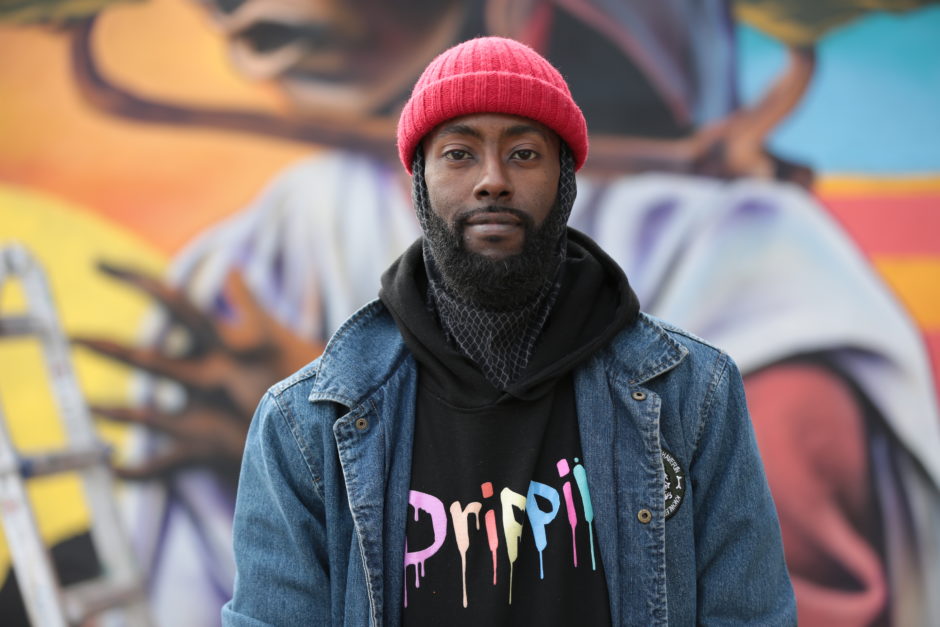November 23, 2020
Over the past five years, Kalkidan Assefa's outdoor art — including a number of murals about Black experiences — has been painted over, doused with white paint, even sprayed with the words "All Lives Matter."
The mural artist says there's an expectation in the urban art world that works like his will eventually be turned into something new.
But after a piece he and two others worked on beneath the Dunbar bridge — in response to Black Lives Matter protests this June — was painted over within a week, he realized there was a clear pattern.
"[It's been occurring] when people get the sense that it might be a Black Lives Matter mural … or if it's just representing people of colour. Over the past five years, I've had a history of this happening," said Assefa.
After three of his public artworks were defaced, urban arts festival House of PainT commissioned artist Kalkidan Assefa to paint a piece highlighting Black experiences in Ottawa
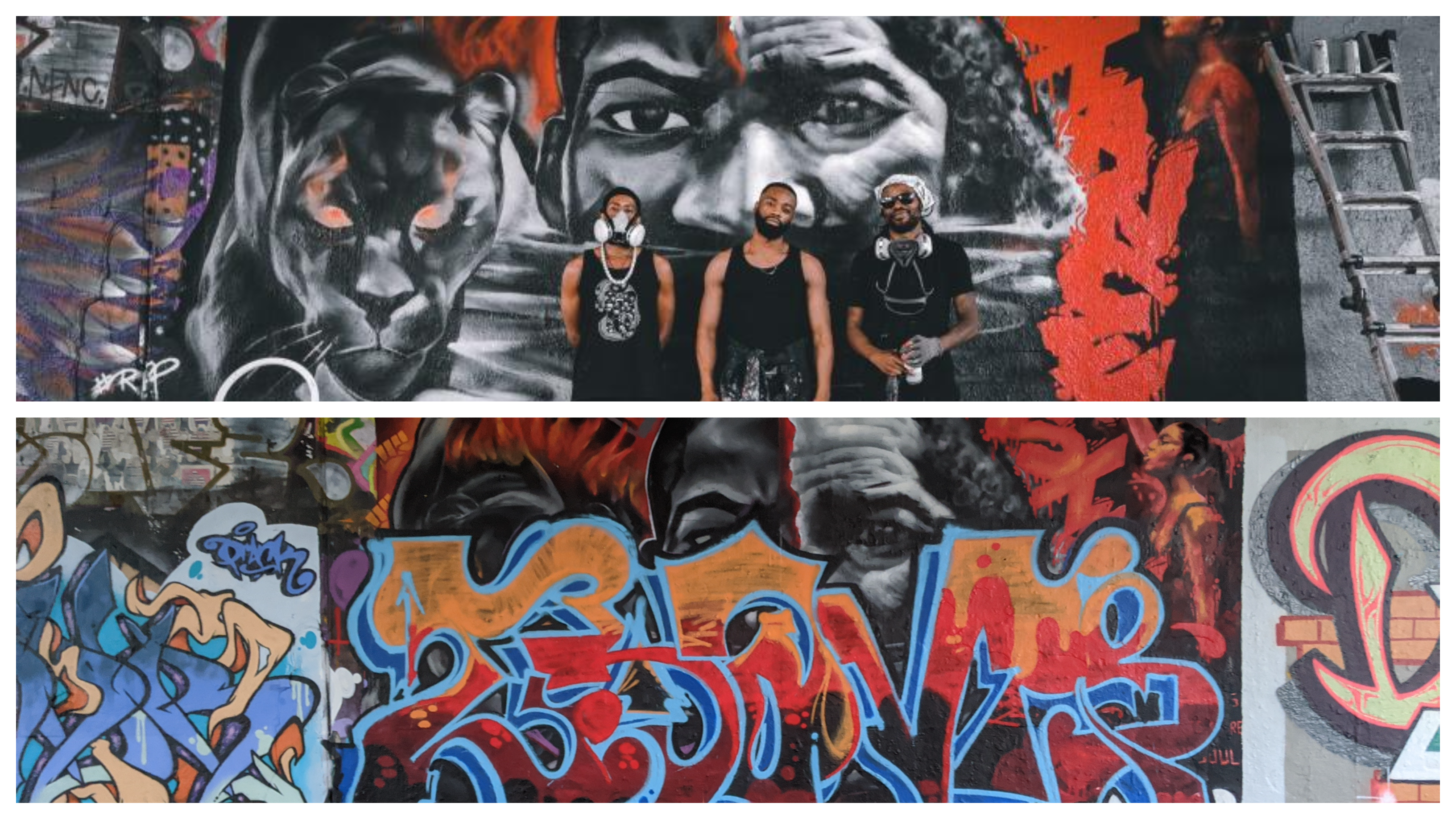
"It's a very deliberate and hateful act," said Veronica Roy, head of the urban arts festival House of PainT, about the repainting of the piece Assefa had installed at the festival's site in Old Ottawa South.
"This disrespect is the milder end of a long-running ongoing experience that Black graffiti artists or Black muralists in Ottawa have experienced."
Roy, Assefa and others frustrated with the painting-over confronted the artist, who had posted his new work on Instagram.
"His response was basically 'f--k you guys,'" said Roy. "He threw down the N-word. He called people a bunch of slurs. And it became very apparent, very quickly, that it was intentional."
In response, the festival decided to commission a new mural from Assefa specifically intended to highlight Black experiences and Black artists in this city.
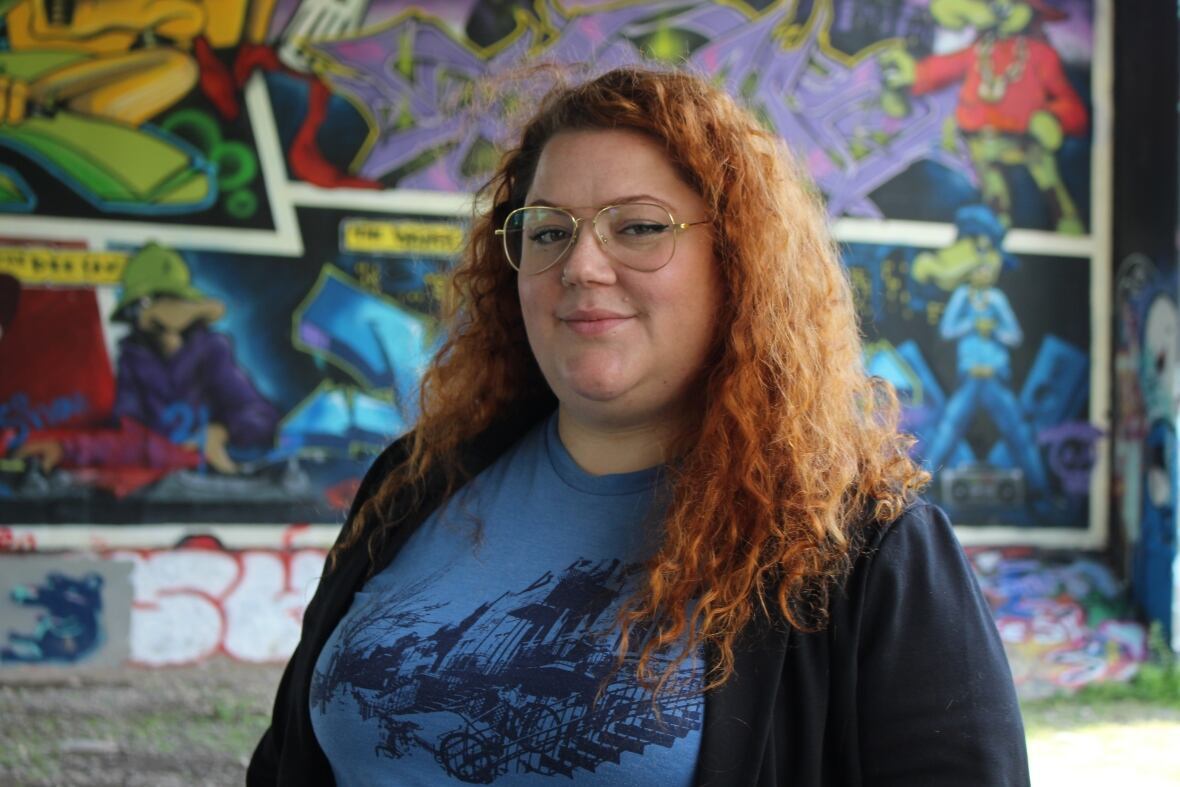
A history of defacement, touch-ups and protection
Assefa says the pattern of defacement first emerged in 2015 when he and fellow artist Allan Andre painted a tribute to Sandra Bland, who died in a Texas jail that year after being arrested during a traffic stop.
It was defaced with the words "All Lives Matter" — a phrase many say undermines the Black Lives Matter message by discounting the disproportionate racism Black people face, particularly at the hands of police.
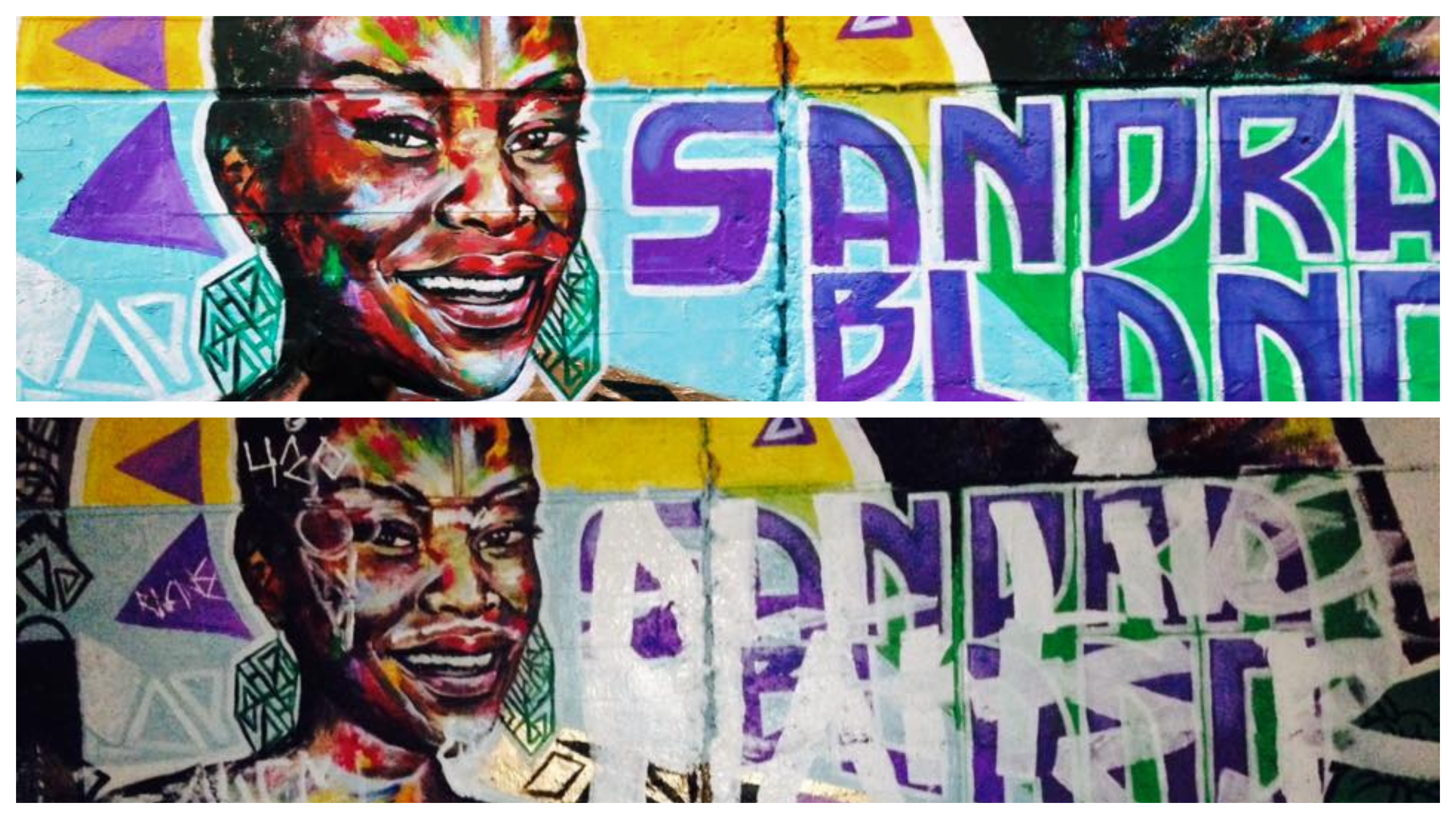
The same words were then sprayed over a mural at Bank and Somerset streets the pair had contributed to, one that honoured transgender women of colour.
For both artists, despite these difficult experiences, more important was what happened next.
When Andre returned to the site of the defaced Sandra Bland mural, he discovered a group of fellow artists and activists camped out, protecting it overnight while it was repainted.
"The fact that [the Sandra Bland mural] was retouched was just really touching for me," Andre said.
Others later did the same to the defaced mural at Bank and Somerset.
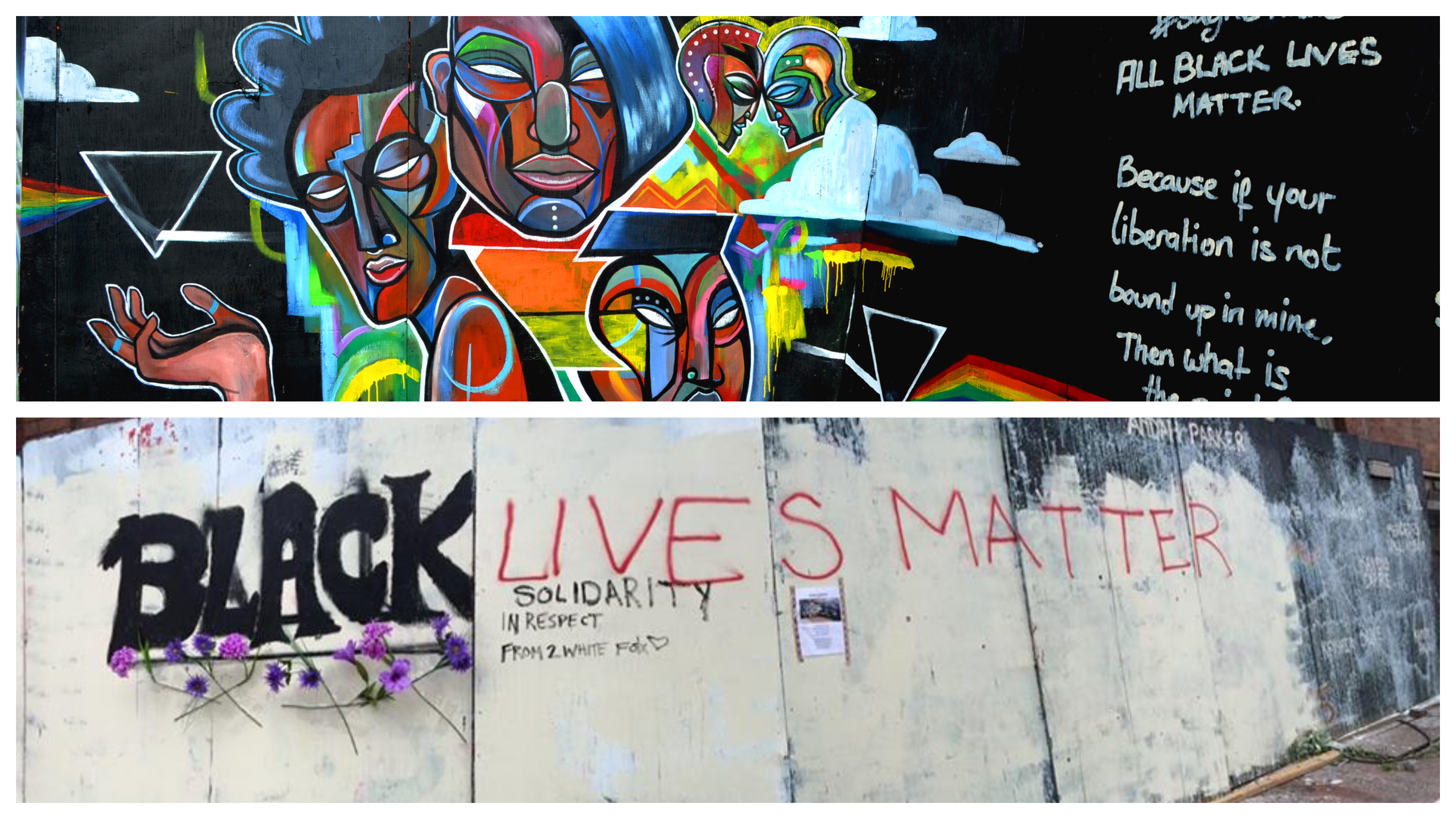
For Assefa, he's encouraged by the fact that hateful messages are never allowed to stand, and the community's reaction has turned the whole experience into something positive.
"People would think that [this pattern] really upsets me, but it doesn't," he said.
"It honestly just kind of empowers me to keep doing the work."
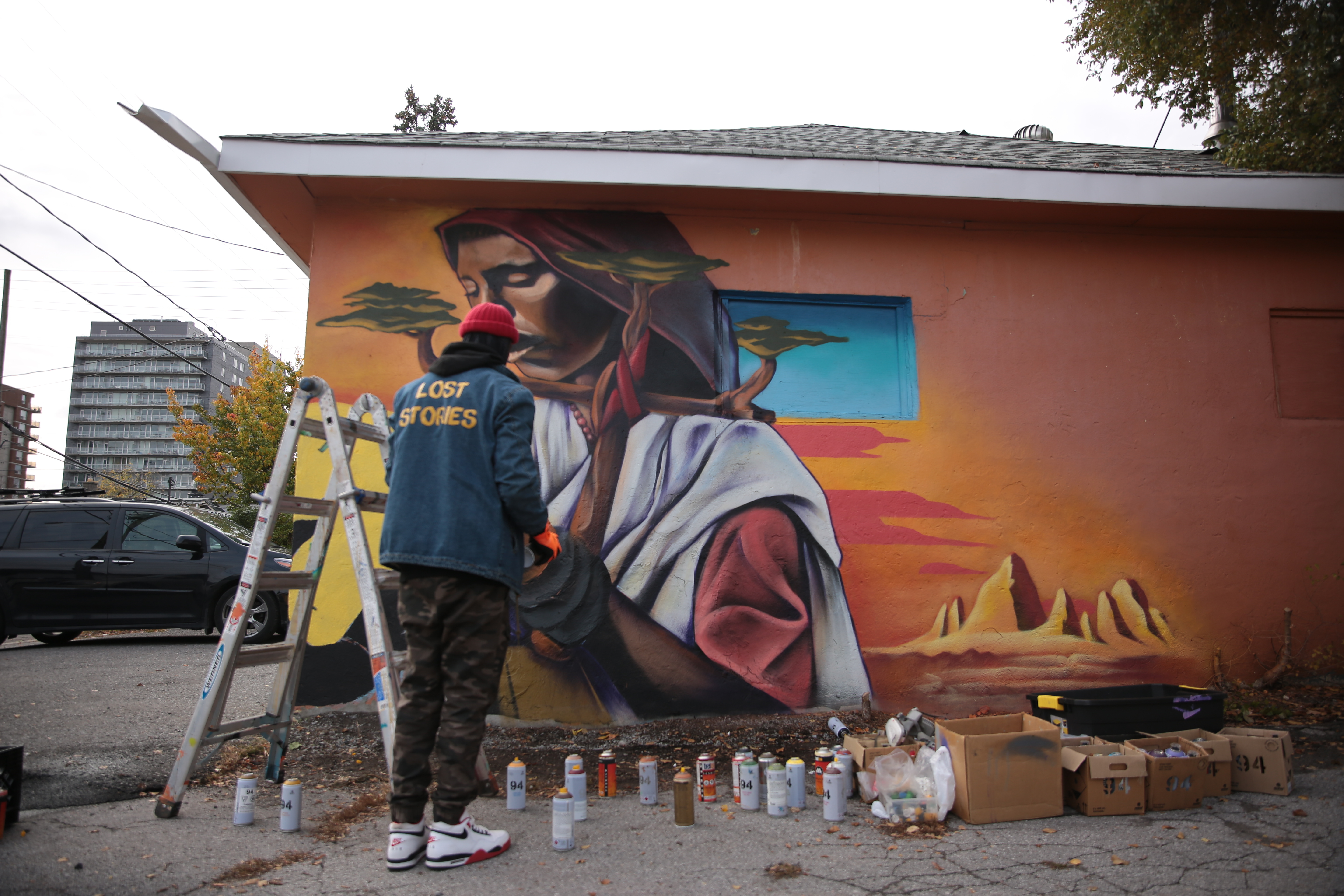
Protecting the paint
Roy spent months searching for a place where the new mural would be out of reach from anyone wanting to deface or paint over it.
Roy eventually settled on a wall of the Origin Art and Community Centre, a cultural hub for the Black community in Mechanicsville.
For the new piece, Assefa decided to showcase his roots, depicting a traditional Ethiopian minstrel.
"The piece I painted was especially personal, because it allowed me to connect with my own Ethiopian culture and share it in a way that finally feels accepted and celebrated," said Assefa about the mural, which was completed in November.
Despite it being at ground level, Assefa says he's confident this mural will have staying power because of how respected the centre is in the community.
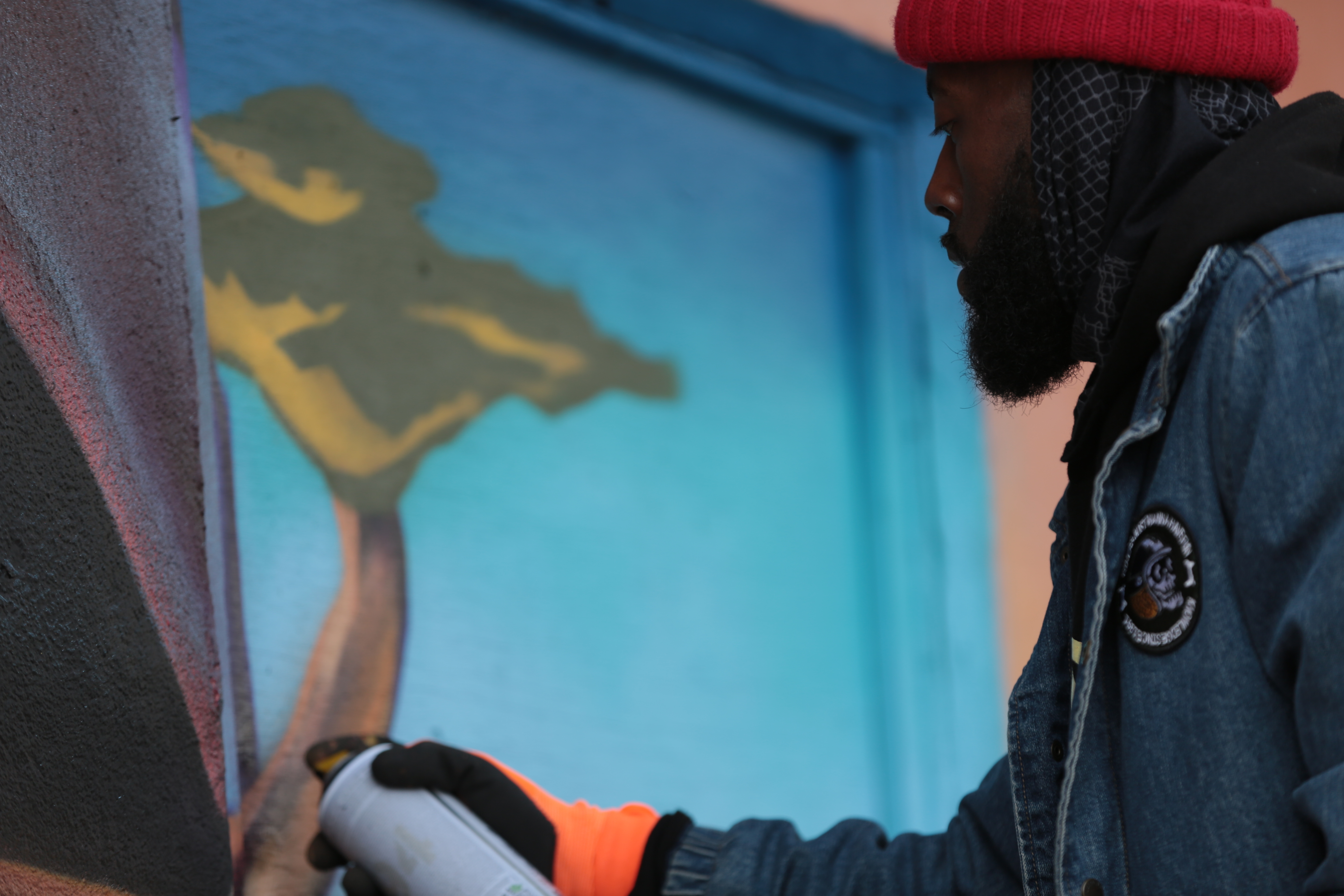
As the weather cools, Assefa says this last mural was the perfect way to end a summer where he decided to paint the city Black.
"Growing up, I didn't necessarily see myself reflected in either the public art or the art in galleries," he said.
"I think it's very important for a community as diverse as ours to be reflected in the artwork that we see."
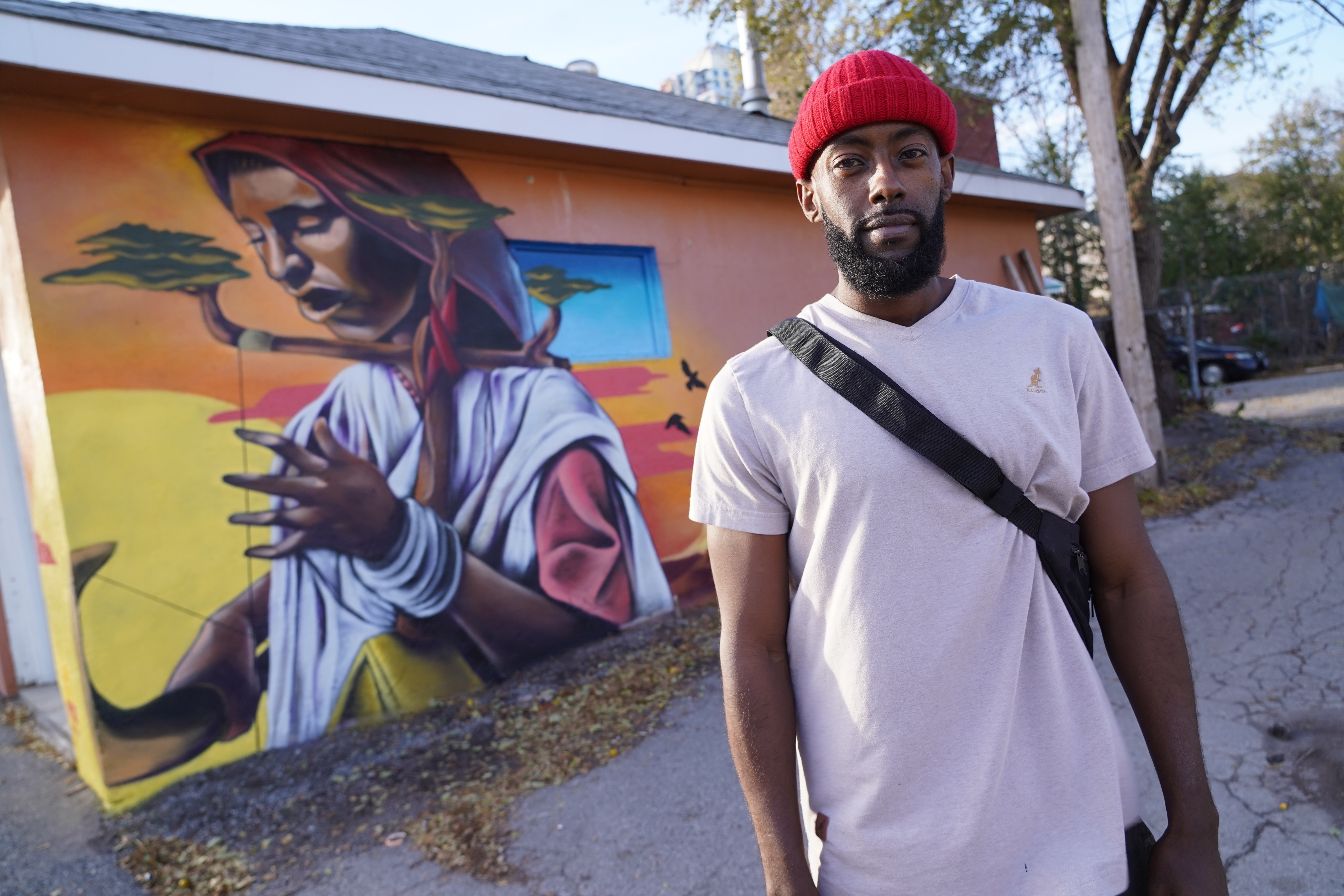
For more stories about the experiences of Black Canadians — from anti-Black racism to success stories within the Black community — check out Being Black in Canada, a CBC project Black Canadians can be proud of. You can read more stories here.

